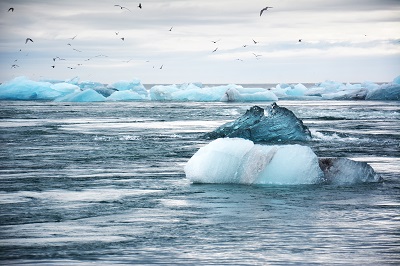The latest development in the area of fighting climate change is the pressure for declarations of a ‘climate emergency’. Local bodies both in New Zealand and overseas have responded to the pressure to do this, as have several countries. I think the first was the UK, although they might be best advised to deal effectively with “Brexit” before getting embroiled in too much more. To her great credit, the only political leader I understand to have rejected the state of emergency call is Jacinda Ardern. She says, fairly I think, that the Government is already doing all that it can in the climate change area, and declaring a state of emergency would thus have no effect.
Two legitimate questions I think are – is a declaration of this sort justified (which raises the question of how you define an emergency) and whether an emergency actually exists in the field of climate change. Or is it just an attempt to draw attention to the perceived need for more action.
Let’s start with the definitional issue. The Oxford Dictionary defines an emergency as “a sudden state of danger or conflict requiring immediate action”. Well, climate change certainly does not conform with that definition. Climate change had been actively on the political agenda for at least the last 30 years and there have been a near endless number of international conferences and meetings set up to decide what action to take. It might be claimed that a sudden state of danger had arisen because of the political decision to attempt to reduce any further global warming to 1 degree or maybe 1.5 degrees, but I would argue that’s not the case.

As to the need for immediate action, I think it is generally the case that the adverse effects of climate change will develop gradually over time, rather than immediately at a point in time. The best example is sea level rise which has been running at an average rate of 2 to 3 mm per year for as long as records exist. Even if the rate accelerates, there will be sufficient time to deal with the consequences. Extreme weather events are a little different as they do occur suddenly and the severity is hard to predict in advance. But again, we are not dealing with the completely unexpected. Extreme weather events have occurred throughout the ages and we have a pretty good idea of what they are – floods, storms, droughts, wild fires, tornados, cyclones etc. – and what we should do to deal with them. An example is that of “tornado alley” in the US which is an area hit virtually every year by destructive tornados. For that reason, tornado shelters are an accepted part of house design.
What we are left with is the declaring of a climate emergency, either as a device for stirring people and organisations into action or for giving the impression of action where there is little or no action occurring. I can see at least three possible reactions from this. The first is that agencies will declare an emergency as a purely political statement, without any intention to do significantly more than they are doing already. The second is that agencies will review their programmes sensibly and only take additional actions if they are warranted. The third is that actions will be taken in order to be seen to be responding, but without much prior thought or analysis. This third group is the most worrisome because it could lead to significant financial impositions on rate payers and/or taxpayers with little justification in terms of impacts on climate change.
An unusual aspect of the current round of climate emergency declarations is that it is being in large part driven by the mobilisation of young people who want those in power to do more. Large and in some cases massive marches and demonstrations have occurred throughout the world, including New Zealand. And it is hard not to admire the dedication and strength of resolve of the young people involved, for indeed they will have to live in the world that the current generations in power are creating. It will be fascinating to see whether that resolve remains and even strengthens as time goes by, or whether it will be a passing phenomenon. In that respect there are two problems I can see.
First, as already mentioned, the impacts of climate change tend to happen gradually over time and not immediately. It will be hard to maintain the momentum of protest under those conditions. The concern is that this will lead to the ‘manufacture’ of a crisis which will be designed to precipitate immediate action.
Secondly, the protests to date are long on rhetoric but relatively short on the actions wanted. At some point agencies will begin to ask – well what exactly do you expect us to do and do you understand and accept the implications of those actions? If the protests trigger a conversation of that sort it will be no bad thing, because informed public discussion has been sadly lacking in the climate change area. Is such a conversation likely to occur? Regretfully I think not because a conversation involves two willing participants. I think we are well past that point.
By Bas Walker
This is another of Bas Walker’s posts on GrownUps. Please look out for his articles, containing his Beachside Ponderings.








Join the Discussion
Type out your comment here:
You must be logged in to post a comment.